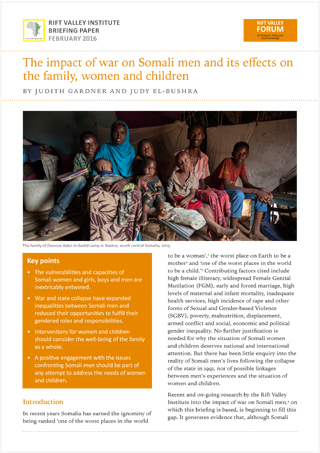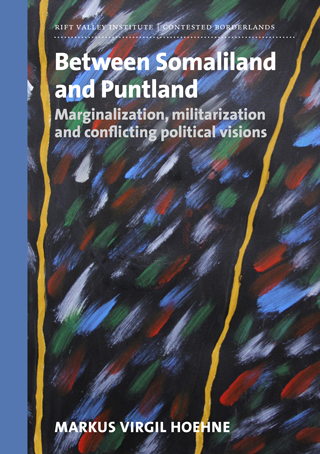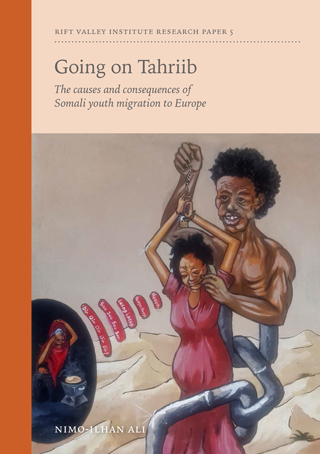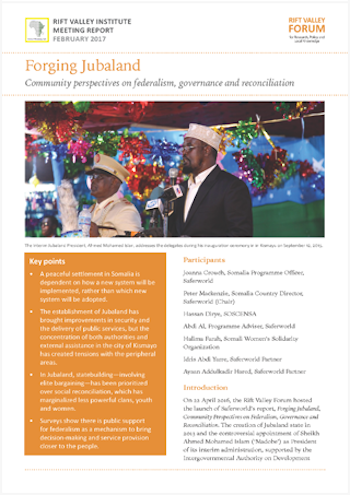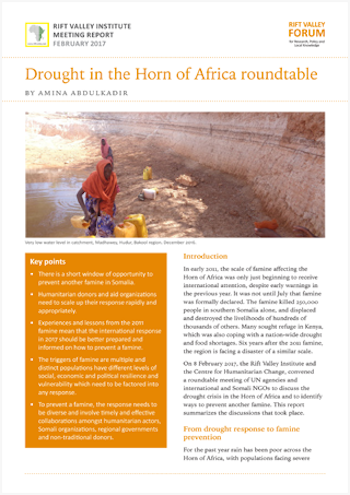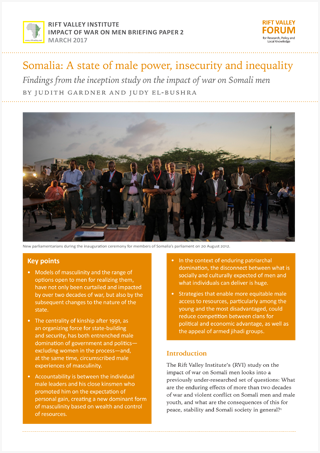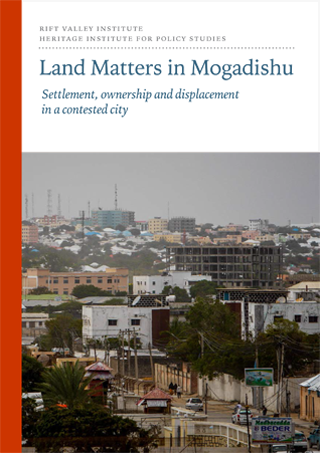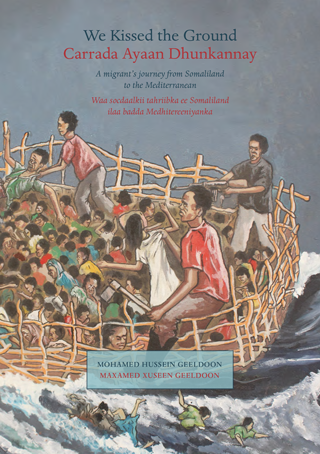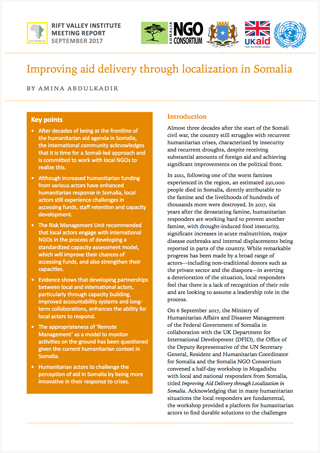In recent years Somalia has earned the ignominy of being ranked ‘one of the worst places in the world to be a woman’, the worst place on Earth to be a mother and ‘one of the worst places in the world…
RVI publishes books, research reports, research papers, briefings and meeting reports in a range of formats. Publications cover policy, research, arts, culture and local knowledge in the countries of eastern and central Africa. Research publications—books, reports and papers—are peer-reviewed. Some RVI publications are also available in French and/or Arabic.
The RVI is a signatory of the Budapest Open Access Initiative (2001); all publications are free for download in PDF format under Creative Commons licences. The views expressed in books and reports published by the RVI are those of the authors, not the Institute.
SEARCH
PUBLICATION TYPE
LANGUAGE
REGION
COUNTRY
‘A valuable contribution to the study of borderlands and state formation. It will be of great interest to students, scholars, policymakers and donors.’ REDIE BEREKTEAB, NORDIC AFRICA INSTITUTE, UPSSALA ‘An ethnographic study of two Somali clans with in-depth analyses of…
‘An enlightening exposé of the motives and societal pressures that spur irregular migration, in this particular case, from Somaliland and Puntland. This study could not be timelier given that people smugglers and migrant traffickers have proven themselves to be…
On 22 April 2016, the Rift Valley Forum hosted the launch of Saferworld’s report, Forging Jubaland, Community Perspectives on Federalism, Governance and Reconciliation. The creation of Jubaland state in 2013 and the controversial appointment of Sheikh Ahmed Mohamed Islam…
In early 2011, the scale of famine affecting the Horn of Africa was only just beginning to receive international attention, despite early warnings in the previous year. It was not until July that famine was formally declared. The famine…
The Rift Valley Institute’s study on the impact of war on Somali men looks into a previously under-researched set of questions: What are the enduring effects of more than two decades of war and violent conflict on Somali men…
This report is a record of a Forum event held on 5 November, before the 13 November 2017 election day. Election day itself was largely peaceful, and the international observer mission reported only minor irregularities on election day, including…
Mogadishu has for more than two decades been one of the most highly contested cities in the world. Since the collapse of President Siyad Barre’s government in early 1991, it has been the object of both military and political…
‘This is a vivid account—one of the best I’ve come across—of what it is to be a Somali migrant in pursuit of a safer future elsewhere, away from the precarious life in the Somali Peninsula. I’ve found it a…
On 6 September 2017, the Ministry of Humanitarian Affairs and Disaster Management of the Federal Government of Somalia, in collaboration with the UK Department for International Development (DFID), the Office of the Deputy Representative of the UN Secretary General,…
Recent Publications

Minor Demarcations, Micro-Dams—Major Drama? Ethno-territorial expansionism and precarious peace in the Oromia–Somali borderlands of eastern Ethiopia
May 20, 2025
The report highlights the overlapping claims to and distributive struggles over territory and resources in the Oromia-Somali borderlands which animated inter-regional competition between the Oromia Regional State (ORS) and Somali Regional State (SRS), resulted in the brief 2023 uptick in

When Women Sing: How Murle women use arts and cultural mediums to communicate
May 16, 2025
This research explores how Murle women in the Greater Pibor area of central eastern South Sudan use not just songs but dance, hairstyles, body marks and beads to express themselves. Its objective is to draw attention to the ways Murle
Effectiveness of Women in Politics and Improving Gender Equality in South Sudan
May 2, 2025
This report argues that, in order to improve women’s participation in politics and promote gender-responsive policies in the country, there is a need to enlarge government capacity for women’s leadership by introducing equal gender quotas for decision-making positions. Summary Women’s

